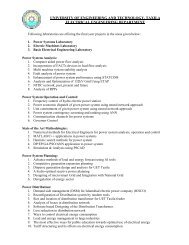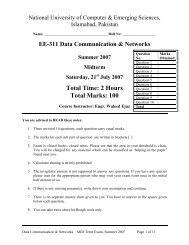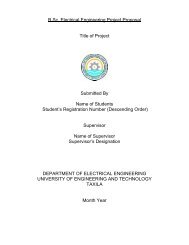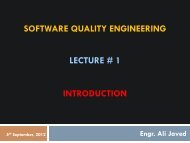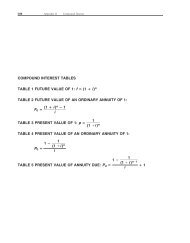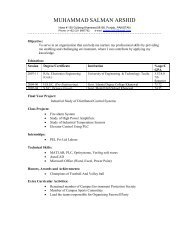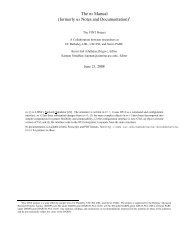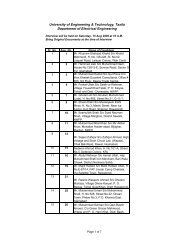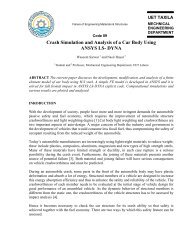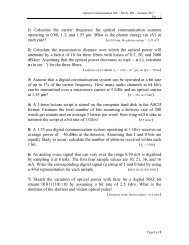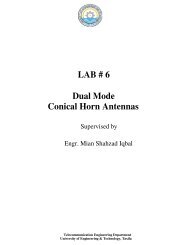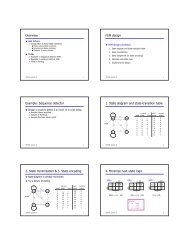View File - University of Engineering and Technology, Taxila
View File - University of Engineering and Technology, Taxila
View File - University of Engineering and Technology, Taxila
You also want an ePaper? Increase the reach of your titles
YUMPU automatically turns print PDFs into web optimized ePapers that Google loves.
use. The ITU Radio Regulations govern satellite communication networks.The approved Reports <strong>and</strong> Recommendations are not <strong>of</strong> themselves obligatoryin the same content as the Radio Regulations, but serve as st<strong>and</strong>ards for use bythe world’s telecommunication community. World administrative radio conferences(WARCs) elect the five members <strong>of</strong> the International FrequencyRegistration Board (IFRB). WARCs may also adopt resolutions <strong>and</strong>recommendations. Only member states vote at these conferences, but representatives<strong>of</strong> other international organizations <strong>and</strong> private sectors can attendthe sessions.The International Radio Consultative Committee (CCIR) <strong>and</strong> the InternationalTelegraph <strong>and</strong> Telephone Consultative Council (CCITT) convenestudy groups in order to recommend technical specifications for equipment<strong>and</strong> to conduct propagation, interference, <strong>and</strong> other types <strong>of</strong> analyses. Thework <strong>of</strong> these committees (CCIR <strong>and</strong> CCITT) has considerable influence onsystem planners, network designers, <strong>and</strong> equipment manufacturers, <strong>and</strong> to alesser degree on operators. For this reason the next subsections briefly describetheir origin, responsibilities, <strong>and</strong> functions.7.1.1 CCIRThe CCIR duties are (as defined under the International TelecommunicationConvention, Nairobi, 1982, first part, chapter 1, Article II, No. 83) to studytechnical <strong>and</strong> operating questions relating specifically to radiocommunicationwithout limit <strong>of</strong> frequency range, <strong>and</strong> to issue recommendations on them. Theobjectives <strong>of</strong> the CCIR are in particular:1. To provide the technical bases for use by the administrative radioconferences <strong>and</strong> radiocommunication services for efficient utilization<strong>of</strong> the radi<strong>of</strong>requency spectrum <strong>and</strong> the geostationary satelliteorbit, bearing in mind the needs <strong>of</strong> the various radio services2. To recommend performance st<strong>and</strong>ards for radio systems <strong>and</strong> technicalarrangements, which ensure their effective <strong>and</strong> compatibleinterworking in international telecommunications3. To collect, exchange, analyze, <strong>and</strong> disseminate technical informationresulting from the studies by the CCIR, <strong>and</strong> other informationavailable, for the development, planning <strong>and</strong> operation <strong>of</strong> radiosystems, including any necessary special measures required t<strong>of</strong>acilitate the use <strong>of</strong> such information in developing countriesCopyright © 2002 by Marcel Dekker, Inc. All Rights Reserved.



